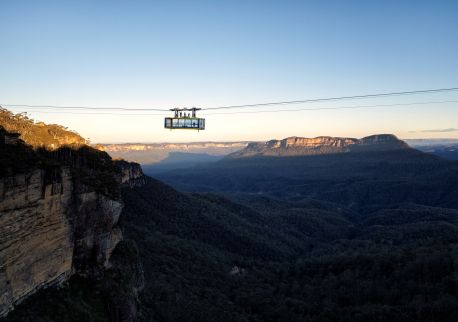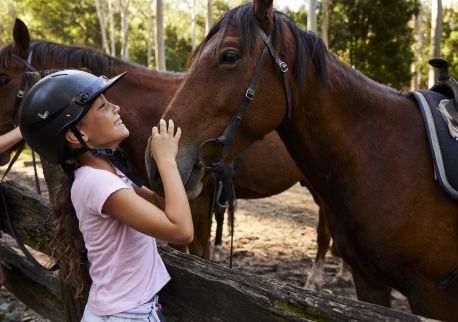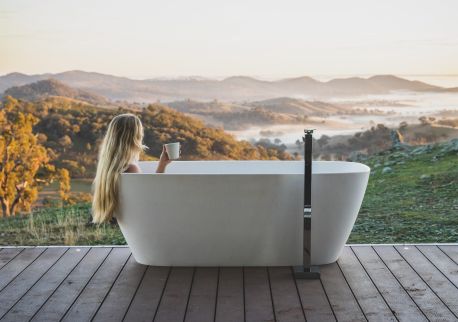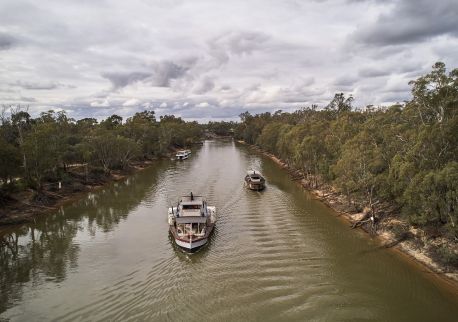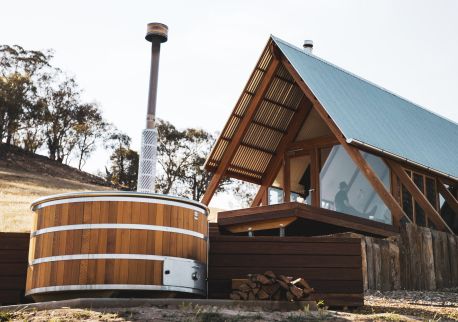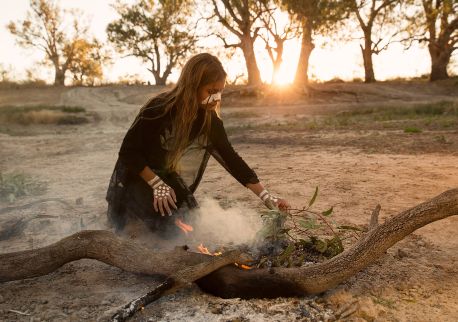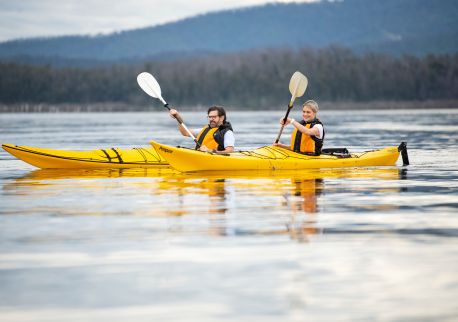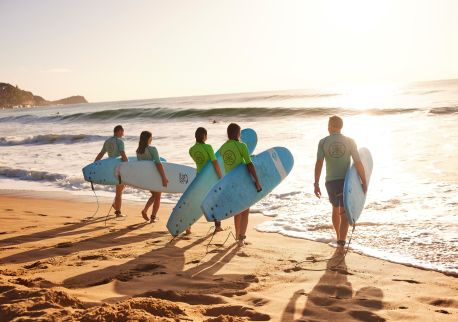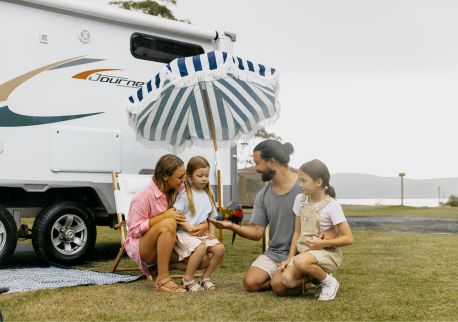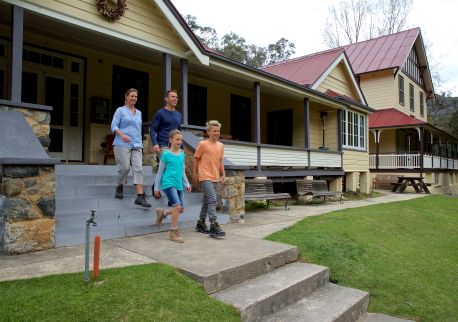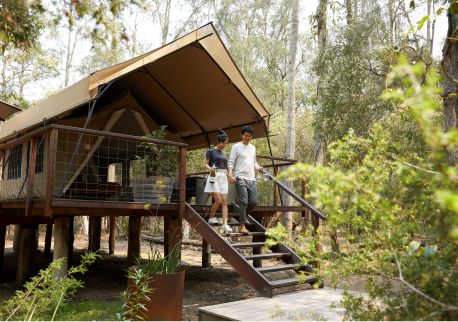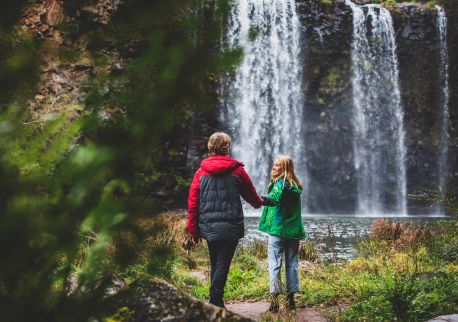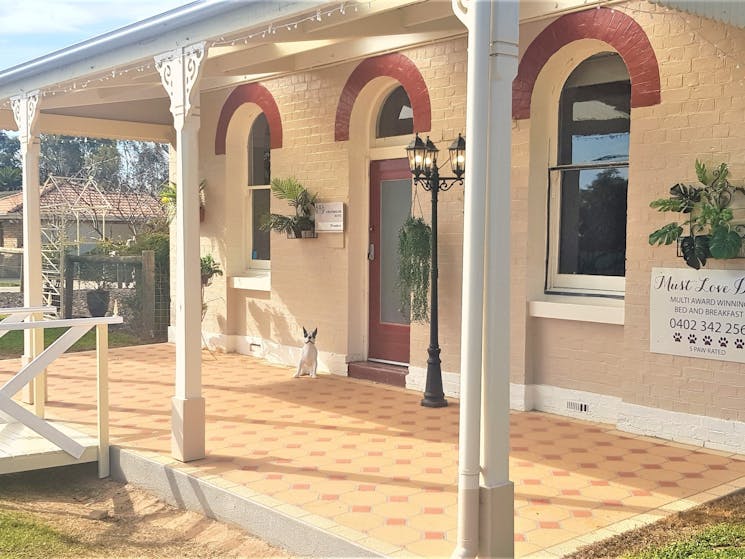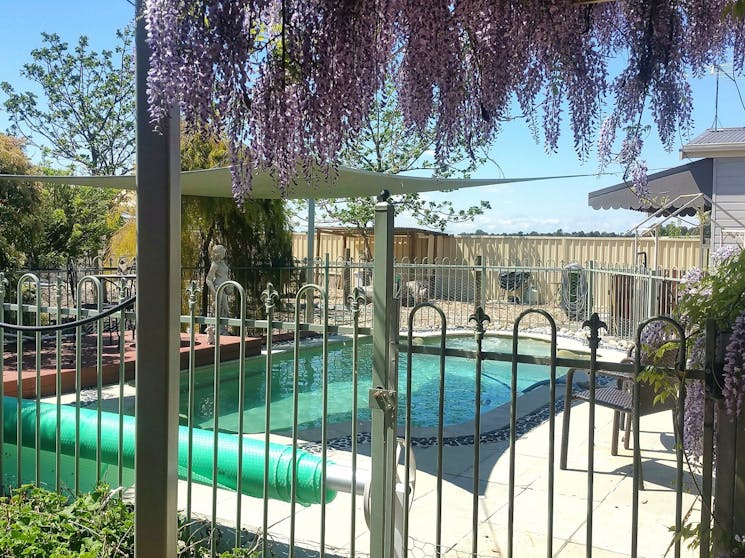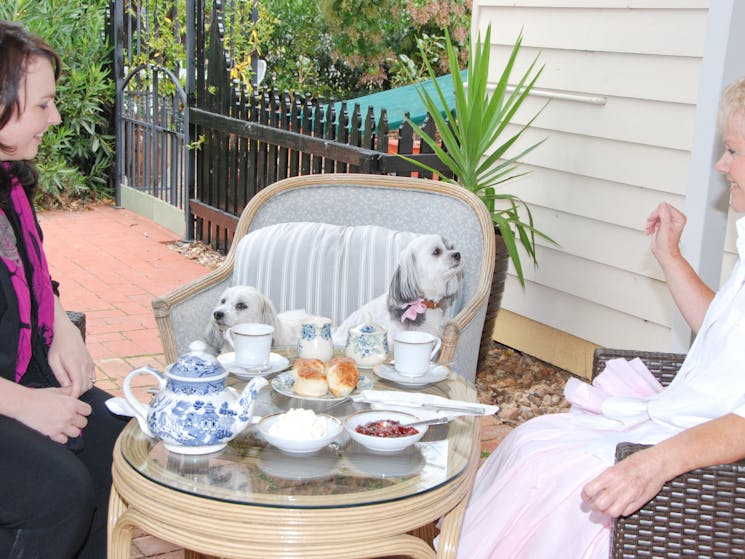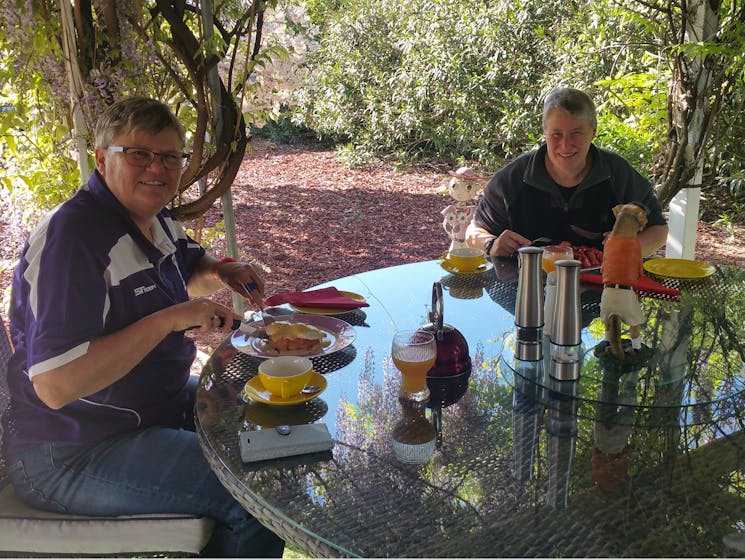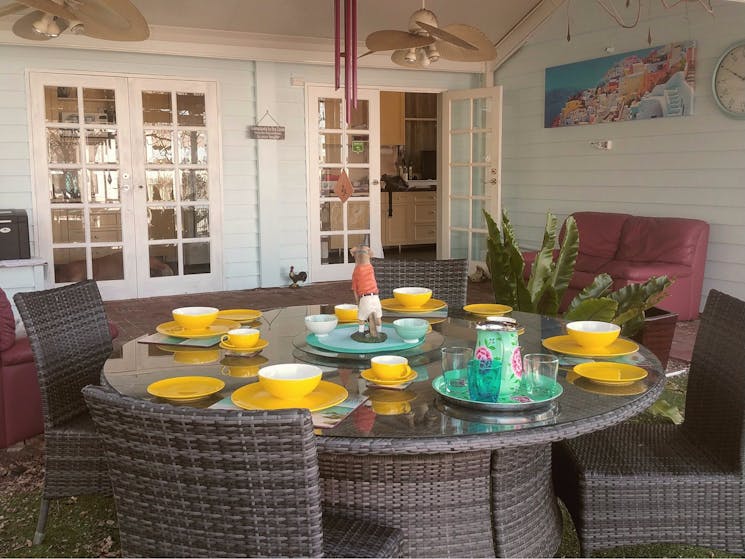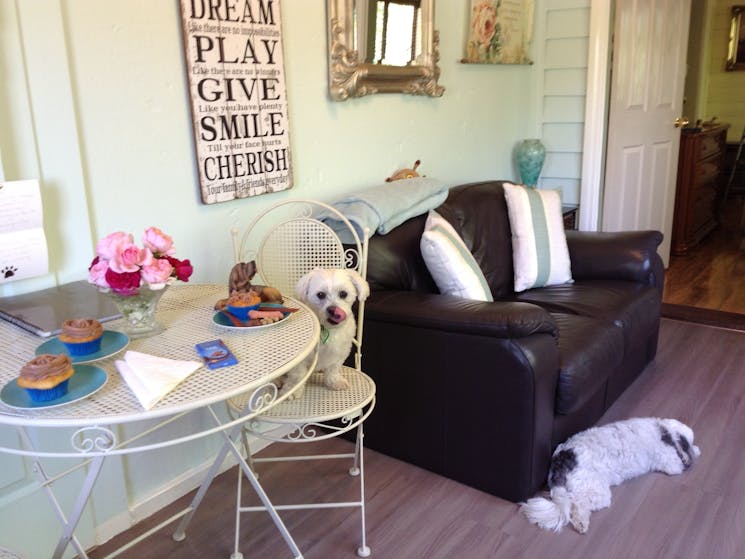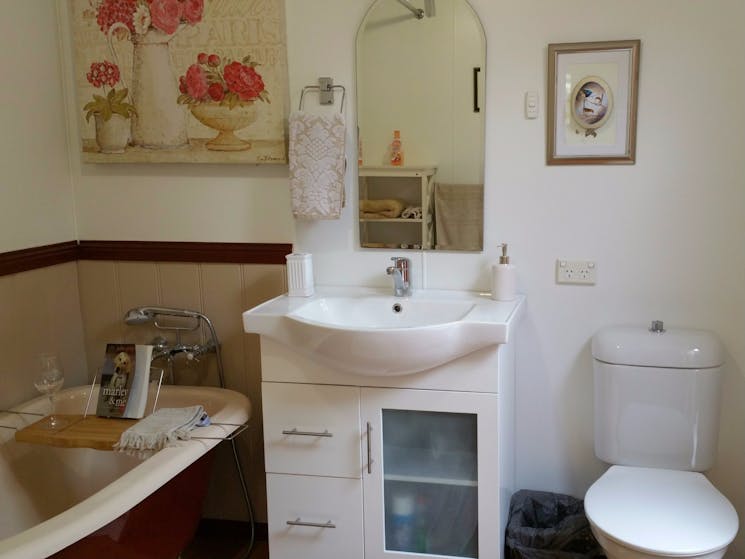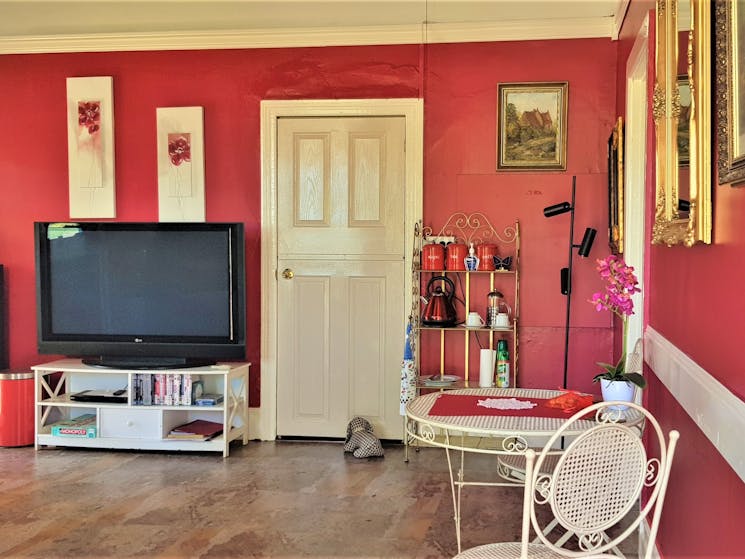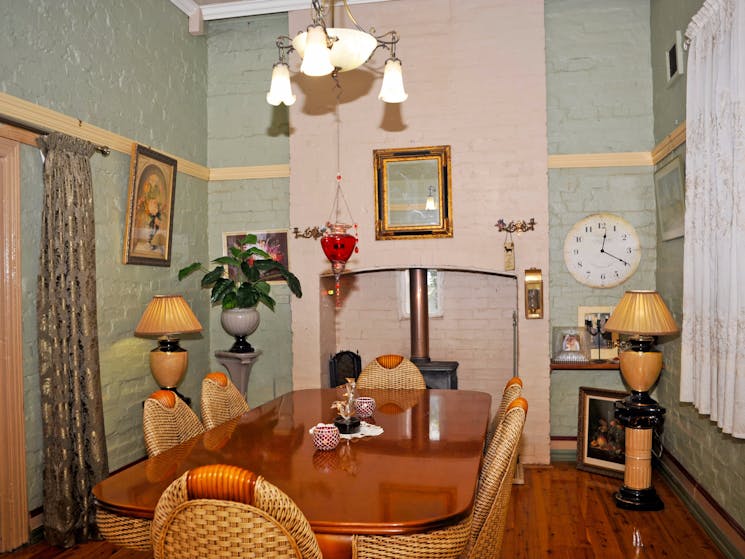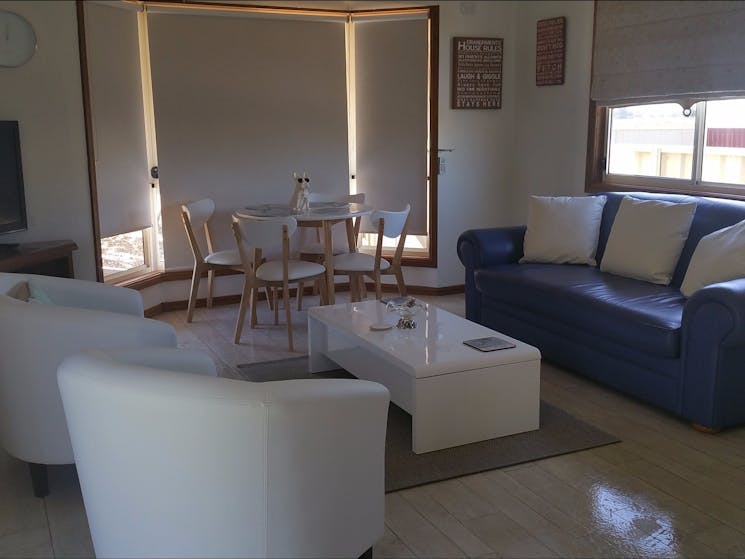Must Love Dogs B&B and Self-Contained Cottage
Overview
Must Love Dogs welcome you with or without a pet. Formally the Globe Hotel 1849c and fully restored to its former glory. Located within the North-East wine region of Rutherglen, you and your furry friends are guaranteed personal attention.
This quaint cottage has two luxury suites and a self-contained cottage, set on a corner block with tranquil gardens, and has an ambience, character and charm all of its own.
The house is air-conditioned for your comfort. Pets are welcomed within the house and the gardens are fully fenced with a summer heated pool. Walking distance from restaurants and close to over 20 wineries.
Must Love Dogs are proud to announce that they have been awarded TripAdvisor's Customer Satisfaction Award every year since opening in 2010, with a five-star rating for cleanliness.
Must Love Dogs can provide a grazing platter for evenings for $ 90 two adults. The home-cooked breakfast is a favourite with guests.
Must Love Dogs can take you and your fur child on a fun wine and history tour to the best wineries in the region $130 for two adults.
They also provide yummy picnic hampers to take to your favourite park $90 for two adults.
Accessibility
A quiet space is available at the venue/ facility
Actively welcomes people with access needs.
Adhere to The Food Authority requirements for allergy management in food preparation
Advise tour guides of the access needs of guests at the time of booking (includes pick up and drop off requirements)
Ask all visitors if there are any specific needs to be met
Caters for people who use a wheelchair.
Caters for people with allergies and intolerances.
Have a kitchen area and desk which is accessible for a person at seated height or is height adjustable
Have a shower curtain (no door)
Have a step free main entrance to the building and/or reception area (includes ramps or slopes with a maximum gradient of 1:14, otherwise are too steep for wheelchairs)
Have a wheelchair accessible toilet / shower and change room
Have accessibility information and photos, including of a bathroom, room and/or floor plan on your website (can be emailed on request)
Have enough space for a wheelchair to move around three sides of a double king sized bed (A pathway of 1200mm minimum width is required for wheelchair access)
Have grabrails in shower recess (can be removable and height adjustable)
Have step free outdoor pathways (includes picnic areas, barbecues and shelters)
Have wheelchair accessible picnic tables (picnic tables require 720mm knee clearance and 800mm maximum height)
Modify your cooking and cleaning practices to cater for people with food allergies or chemical intolerances (could include menus with meals free from: nuts, dairy, seafood, eggs, gluten etc)
Offer multiple options for booking - web, email, phone
Provide a choice of wheelchair accessible accommodation rooms (Guest may wish to know if you have a choice of wheelchair accessible rooms, such as single room / studio apartment / apartment / cottage / quality / views, etc. Wheelchairs require a 1600mm x 2200mm width area to turn around and require step free access.)
Provide assistance with booking arrangements (includes providing clear itineraries with written instructions on what to do at various destinations)
Train your staff in communicating with people with learning or behavioural challenges
Train your staff in disability awareness
Train your staff to respond to allergic reactions
Use organic (chemical and fragrance free) cleaning products
Use organic (chemical and fragrance free) deodorisers in public areas and rooms
Use Plain English / easy read signage and information (includes menus and emergency information)
Welcomes and assists people who have challenges with learning, communication, understanding and behaviour. (includes people with autism, intellectual disability, Down syndrome, acquired brain injury (ABI), dyslexia and dementia)

